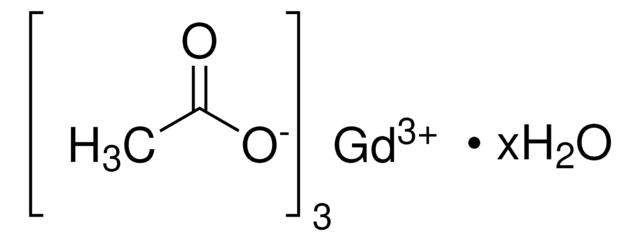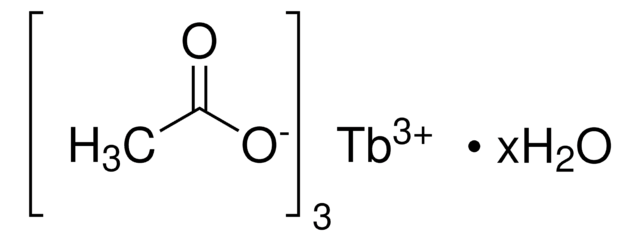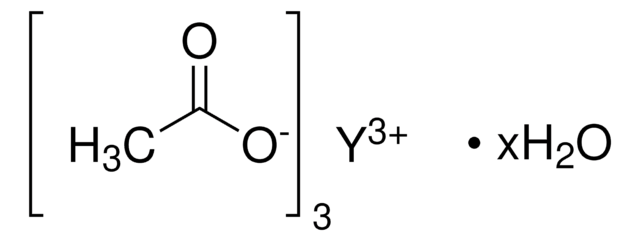331716
Gadolinium(III) acetylacetonate hydrate
99.9% trace metals basis
Synonym(s):
2,4-Pentanedione gadolinium(III) derivative, Gd(acac)3
About This Item
Recommended Products
Quality Level
assay
99.9% trace metals basis
form
powder
solid
reaction suitability
core: gadolinium
reagent type: catalyst
mp
143 °C (dec.) (lit.)
SMILES string
O.O.CC(=O)\C=C(/C)O[Gd](O\C(C)=C\C(C)=O)O\C(C)=C\C(C)=O
InChI
1S/3C5H8O2.Gd.2H2O/c3*1-4(6)3-5(2)7;;;/h3*3,6H,1-2H3;;2*1H2/q;;;+3;;/p-3/b3*4-3+;;;
InChI key
VDRNKMRBGOSTIC-OCLMOVOUSA-K
Related Categories
signalword
Warning
hcodes
Hazard Classifications
Eye Irrit. 2 - Skin Irrit. 2 - STOT SE 3
target_organs
Respiratory system
wgk_germany
WGK 3
flash_point_f
Not applicable
flash_point_c
Not applicable
ppe
dust mask type N95 (US), Eyeshields, Gloves
Certificates of Analysis (COA)
Search for Certificates of Analysis (COA) by entering the products Lot/Batch Number. Lot and Batch Numbers can be found on a product’s label following the words ‘Lot’ or ‘Batch’.
Already Own This Product?
Find documentation for the products that you have recently purchased in the Document Library.
Customers Also Viewed
Articles
Magnetic nanoparticles have attracted tremendous attention due to their novel properties and their potential applications in magnetic recording, magnetic energy storage and biomedicine.
The application of magnetism and magnetic materials pervades our modern civilization in the form of electrical power, communications and information storage.
The rare earth elements impact nearly everyone in the world. All of the people living in advanced technological countries and almost all those living in third world countries utilize the rare earths in their everyday living—the car that one drives (gasoline is refined from oil using rare earth catalysts and catalytic converters reduce the polluting emissions from the automotive exhaust), watching the news on TV (the red and green colors in TV screens), the telephones and computers we use to communicate (the permanent magnets in speakers and disc drives), just to name a few examples.
Our team of scientists has experience in all areas of research including Life Science, Material Science, Chemical Synthesis, Chromatography, Analytical and many others.
Contact Technical Service










